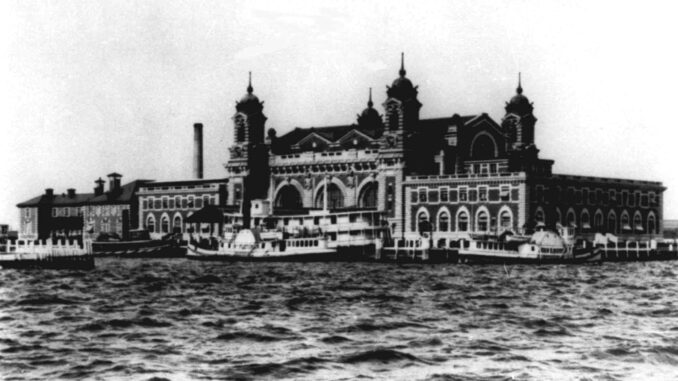
Dec. 26
1908: Jack Johnson became the first black boxer to win the world heavyweight championship as he defeated Canadian Tommy Burns in Sydney, Australia.
1991: The USSR was formally dissolved through a declaration by the Supreme Soviet.
2004: A 9.1-magnitude earthquake beneath the Indian Ocean triggered a tsunami with waves up to 100 feet high, killing an estimated 230,000 people.
Dec. 27
1904: James Barrie’s play “Peter Pan: The Boy Who Wouldn’t Grow Up” opened at the Duke of York’s Theater in London.
1932: New York City’s Radio City Music Hall opened to the public.
1979: Soviet forces seized control of Afghanistan.
1985: American naturalist Dian Fossey, 53, who had studied mountain gorillas in Africa for nearly 20 years, was found murdered in her cabin in Rwanda.
Dec. 28
1908: A major earthquake followed by a tsunami devastated the Italian cities of Messina and Reggio Calabria, killing at least 70,000 people.
1945: Congress officially recognized the Pledge of Allegiance.
1973: The Endangered Species Act was signed into law by President Richard Nixon.
1981: Elizabeth Jordan Carr, the first American “test-tube” baby, was born in Norfolk, Virginia.
Dec. 29
1170: Thomas Becket, the Archbishop of Canterbury, was slain in Canterbury Cathedral by knights loyal to King Henry II.
1812: During the War of 1812, the American frigate USS Constitution engaged and severely damaged the British frigate HMS Java off Brazil.
1845: Texas was admitted as the 28th state.
1851: The first Young Men’s Christian Association (YMCA) in the United States was founded in Boston.
1890: The Wounded Knee massacre took place in South Dakota as an estimated 300 Sioux Indians were killed by U.S. troops sent to disarm them.
Dec. 30
1813: British troops burned Buffalo, New York, during the War of 1812.
1853: The United States and Mexico signed a treaty under which the U.S. agreed to buy some 45,000 square miles of land from Mexico for $10 million in a deal known as the Gadsden Purchase.
1922: Vladimir Lenin proclaimed the establishment of the Union of Soviet Socialist Republics, which lasted nearly seven decades before dissolving in December 1991.
2015: Bill Cosby was charged with drugging and sexually assaulting a woman at his suburban Philadelphia home in 2004.
Dec. 31
1879: Thomas Edison first publicly demonstrated his electric incandescent light in Menlo Park, New Jersey.
1904: New York’s Times Square saw its first New Year’s Eve celebration.
Jan. 1
1863: President Abraham Lincoln issued the Emancipation Proclamation, declaring that slaves in rebel states shall be “forever free.”
1892: The Ellis Island Immigrant Station in New York formally opened.
1942: The Rose Bowl was played in Durham instead of Pasadena, California, because of security concerns in the wake of Japan’s attack on Pearl Harbor.
1953: Hank Williams Sr., among the most important singers and songwriters in country music history, was discovered dead at age 29.
1954: NBC broadcast the first coast-to-coast color TV program.
1959: Fidel Castro and his revolutionaries overthrew Cuban leader Fulgencio Batista.



